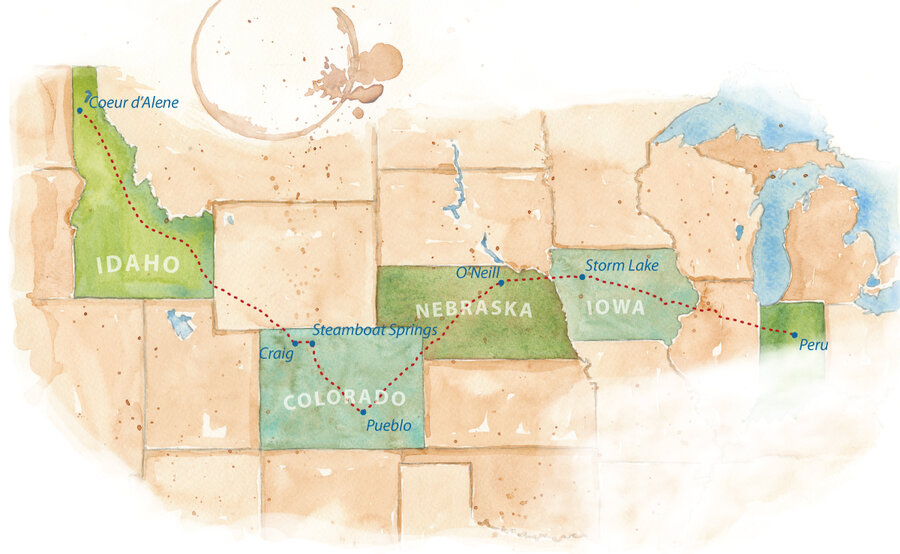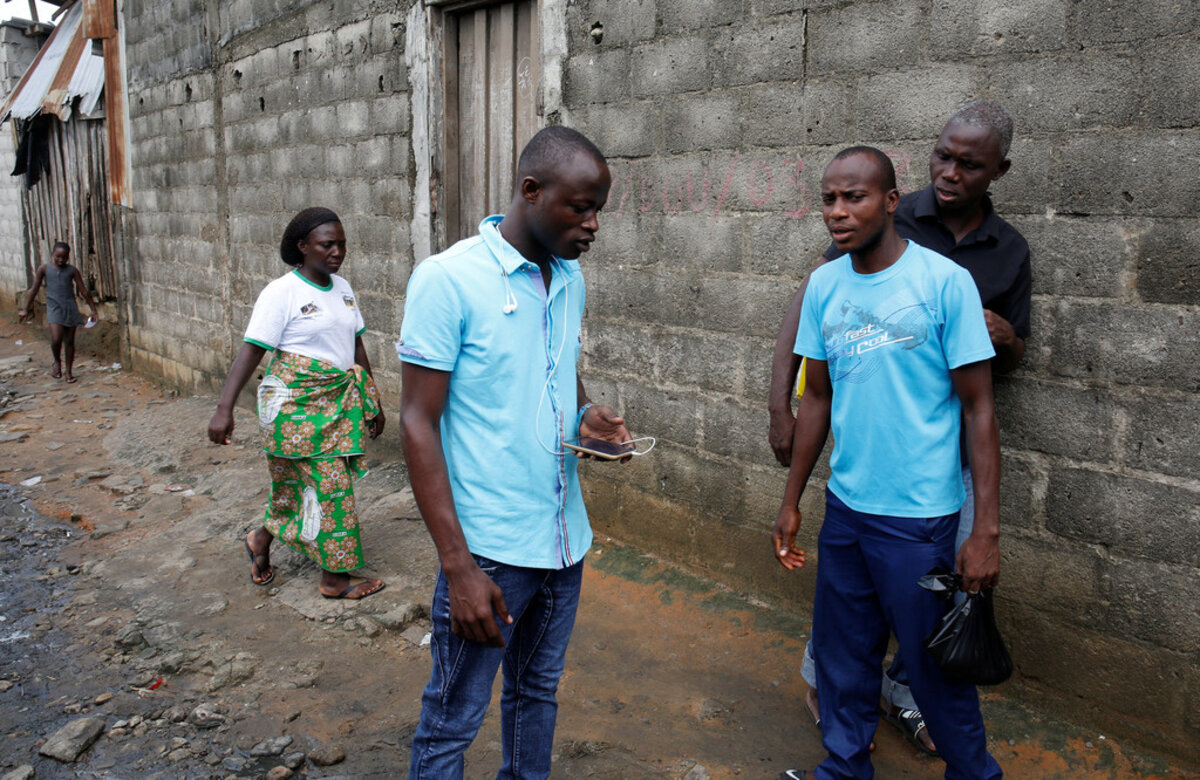Congress doesn't have a human resources department – and politicians don't answer to boards or bosses. If voters essentially say "who cares" when it comes to charges of sexual misconduct or even abuse, what effect might that have in turning this moment of revulsion about sexual harassment into a permanent change in the culture?
Monitor Daily Podcast
- Follow us:
- Apple Podcasts
- Spotify
- RSS Feed
- Download
 Yvonne Zipp
Yvonne Zipp
It’s time to talk about good news.
In a thought-provoking essay, “How America Became So Divided,” former Time magazine editor in chief Nancy Gibbs looks at Americans’ literal comfort zones (people choose to live near people who think the same way) and the distorting effects of life viewed through a bubble. She also examines the media’s “bias against the positive.”
“But a bias against the positive fuels cynicism in both public officials and voters,” Ms. Gibbs writes. “And it misses the story.… If we don’t write about what is working as well as what isn’t, whether in state and local government, in the private sector, in the vibrant, entrepreneurial, immensely potent philanthropic arena, we are missing one of the greatest stories of our times.”
The Monitor, as previous editor Marshall Ingwerson put it, has a bias toward hope. We consciously look for credible solutions, progress, and understanding.
On a personal note, I’d like to offer my gratitude and best wishes to the editor who first gave me the chance to look at the world as a Monitor reporter. Dave Cook, after having presided over more than 600 Monitor Breakfasts, is bidding adieu to Washington, D.C. (For a news story out of his final breakfast today with Sen. Susan Collins of Maine, click here.)
I will always remember Dave's kindness, generosity, and unfailing good humor. One of his favorite sayings is, “People of goodwill can disagree.” It’s important to remember that in these times.
Now, here are our five stories selected for today, looking at questions of justice, an effort to tackle corruption, and a search for common ground.











